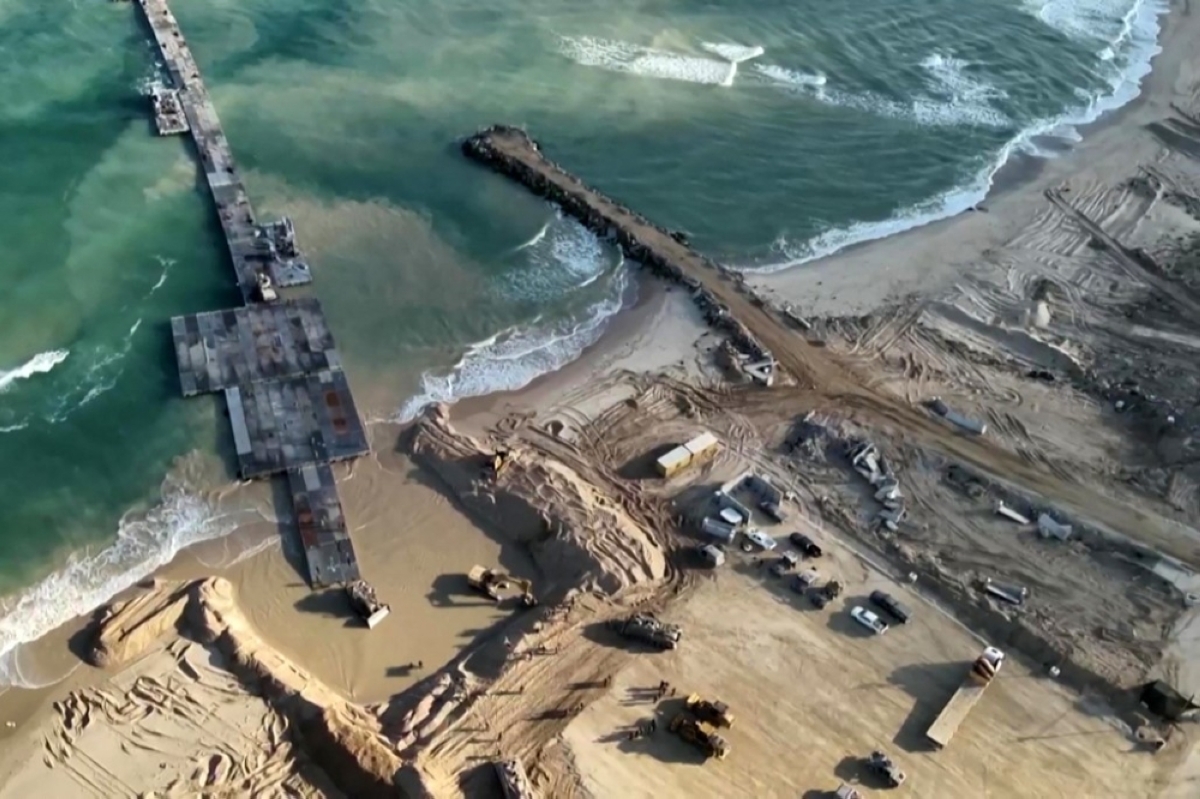
RAFAH, Palestinian Territories – Heavy clashes and bombardment rocked Rafah on Saturday, witnesses said, as Israel's military announced that the first 310 pallets of humanitarian aid had entered the Gaza Strip via an American-built pier.
More than 10 days into what the country's armed forces called a "limited" operation in Gaza's southernmost city, fighting between Israeli troops and Palestinian militants has also flared again in the besieged territory's north.
The Kuwaiti hospital said an overnight Israeli strike killed at least two people in a camp for displaced people in Rafah, with witnesses reporting heavy gunfire and shelling in the city's southeast and jets bombarding its eastern areas.
Agence France-Presse (AFP) correspondents, witnesses and medics said there were intense battles overnight in the northern Jabalia refugee camp, after the Israeli army reported on Friday "perhaps the fiercest" violence in the town in more than seven months of war.
Israel in early January said it had dismantled Hamas' command structure in northern Gaza, but the army said the Palestinian group — whose October 7 attacks on southern Israel sparked the current war — "was in complete control here in Jabalia until we arrived a few days ago."
The Israeli incursion into Rafah, launched despite overwhelming international opposition and as mediators were hoping for a breakthrough in stalled truce talks, has worsened an already dire humanitarian crisis, aid groups say.
With key land crossings closed or operating at limited capacity because of the fighting, some relief supplies began flowing into war-ravaged Gaza via a temporary, floating pier constructed by the United States.
The 310 pallets began moving ashore in "the first entry of humanitarian aid through the floating pier," the Israeli army said in a statement.
In the coming days, about 500 tons of aid are expected to be delivered to Gaza through the pier, the US Central Command said.
But United Nations agencies and humanitarian aid groups have warned that the so-called maritime corridor, and ongoing airdrops from planes, cannot replace far more efficient truck convoys into Gaza, where the UN has repeatedly warned of looming famine.
Rafah operation hampers aidThe European Union welcomed the first shipment from Cyprus to the Gaza pier, but called on Israel to "expand deliveries by land and to immediately open additional crossings."
Hamas, which controls Gaza, stressed that the floating pier "is not an alternative to opening all land crossings."
Hamas' October 7 attacks resulted in the deaths of more than 1,170 people, mostly civilians, an AFP tally of Israeli official figures shows.
Israel's retaliatory offensive against Hamas has killed at least 35,303 people in Gaza, mostly civilians, data provided by the Hamas-run territory's Health Ministry showed.
Of the 252 people taken hostage from Israel during the October 7 attacks, 125 remain held in Gaza, including 37 the army says are dead.
It said troops in Gaza had recovered on Thursday night the bodies of three hostages who had been "murdered" on October 7.
Amid the aid shortages, the Israeli army said "dozens of Israeli civilians" set fire to a Gaza-bound aid truck in the occupied West Bank on Thursday night, in the second such attack in a week.
It came after right-wing activists ransacked at least seven aid trucks from Jordan near the Tarqumya crossing with the West Bank on Monday.
Aid groups have said the Rafah incursion has further hampered aid deliveries, with the city's crossing on the Egyptian border — a vital conduit for humanitarian assistance — now shut.
Israeli Prime Minister Benjamin Netanyahu has put the onus on Egypt to reopen the crossing. In turn, Cairo has accused Israel in turn of denying responsibility for a humanitarian crisis in Gaza, saying truck drivers and aid workers do not feel safe crossing through an Israeli checkpoint into the Strip.
Read The Rest at :


